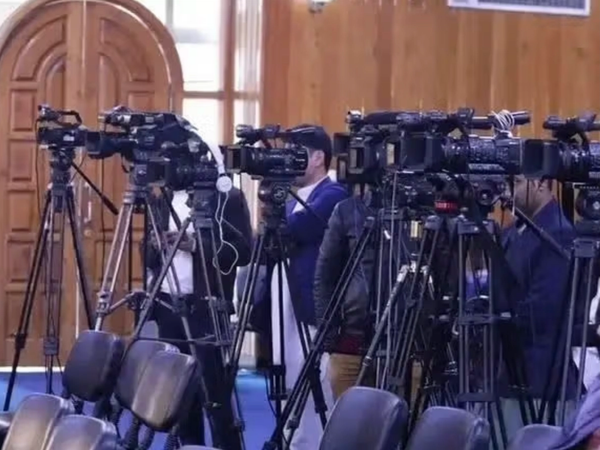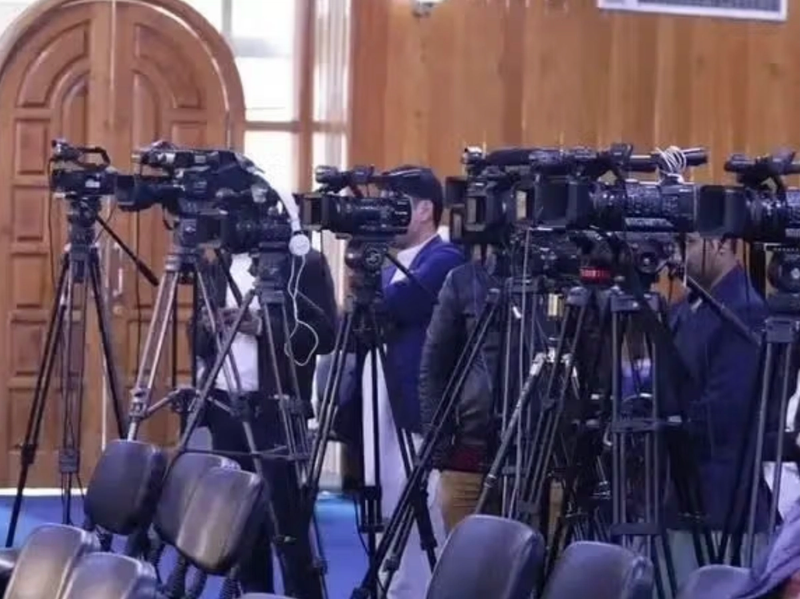The Afghanistan Journalists Centre has recorded at least 140 violations of press freedom in the first half of 2025, marking a 56 percent increase compared to the same period last year.
Most incidents involved direct threats to media outlets and intimidation of journalists.
In a report released Friday, 11 July, the centre said the Taliban have imposed new restrictions on visual media, particularly television, citing the enforcement of the “Promotion of Virtue and Prevention of Vice” law. The ban on broadcasting images of living beings has expanded from five provinces to an additional 14.
These measures have led to the closure of 26 outlets, primarily local television stations. Some have shut down entirely, while others have been converted to radio operations. The report also noted that two radio stations and one private TV channel were closed on accusations of collaborating with foreign media. They were only allowed to resume limited operations after agreeing to strict self-censorship.
20 Journalists Arrested
At least 20 journalists were arrested during this period, most on charges of “propaganda against the ruling administration.” Six have been sentenced to between six months and one year in prison and are currently held at Pul-e-Charkhi and Bagram prisons.
The report highlights increasing pressure on female journalists and media outlets led by women. In some provinces, local Taliban officials have reportedly made the renewal of media licences conditional on male ownership or management. In Kandahar, broadcasting women’s voices has been fully banned, as part of what the report describes as a systematic effort to remove women from media based on an extreme interpretation of Sharia law.
The financial crisis facing private media has also worsened due to declining international support, forcing many outlets to cut programming and lay off staff.
Political Programming Banned
In Kabul, the Taliban’s Ministry of Information and Culture has reportedly banned political and economic discussions from being broadcast, further limiting public access to information.
The Afghanistan Journalists Centre warned of the long-term consequences of ongoing media repression and called on the Taliban to uphold press freedom under existing laws.
It also urged the international community to increase pressure on the Taliban to protect independent journalism and support a pluralistic media environment in Afghanistan.

